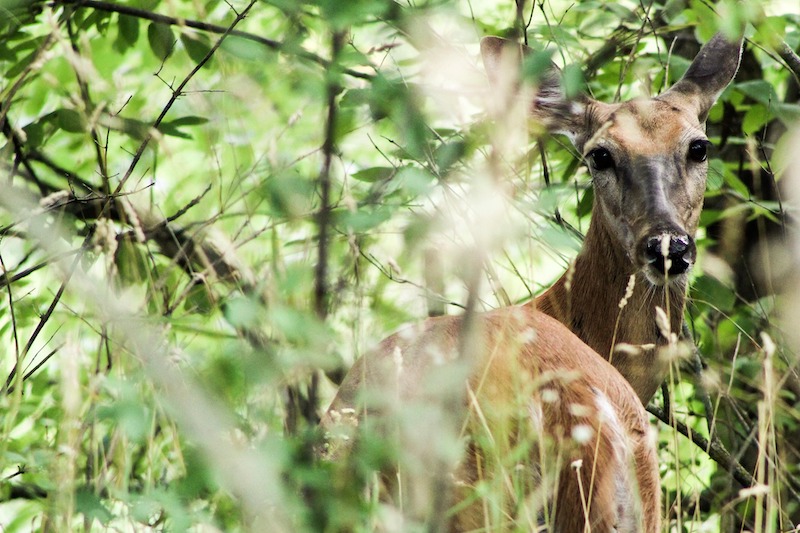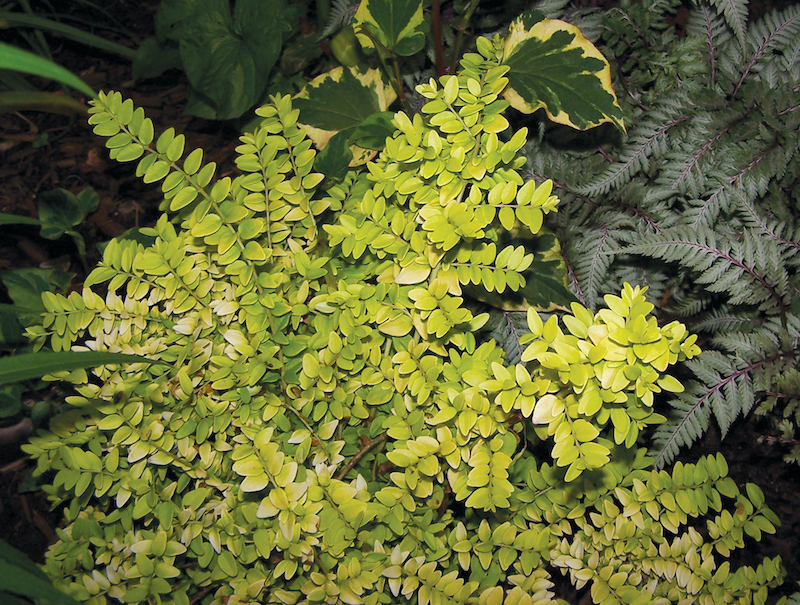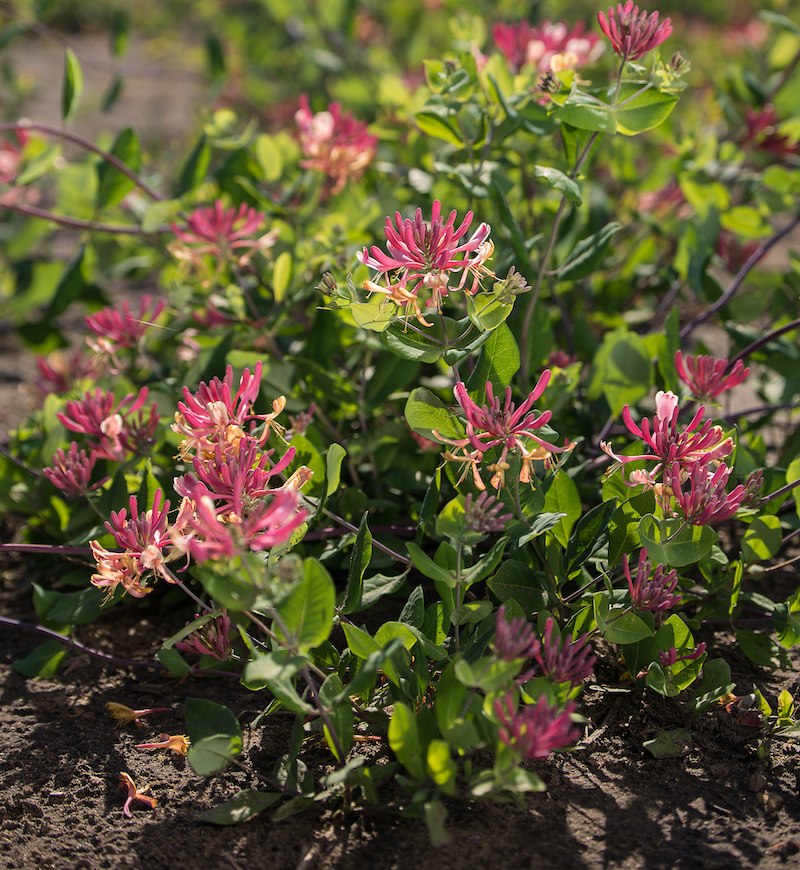Honeysuckle (Lonicera) is a diverse plant group that includes bush and vining types. This perennial is poisonous for animals like dogs and cats, but it is not harmful to grazers like deer. Foraging animals may eat and damage Honeysuckle bushes.
All Honeysuckle plants are at risk of being eaten by animals during the summer. Deciduous varieties are less likely to sustain damage during the winter, but in desperate times, animals may strip the bark from the branches. Broadleaf evergreen Honeysuckle plants are more at risk of damage from hungry animals during the winter when food is more scarce.

Animals are more likely to eat Honeysuckle shrubs than many other plants. Dense thickets of honeysuckle are especially attractive because deer can bed in them and find easy food. Some varieties are more deer resistant than others including Lonicera sempervirens, Lonicera nitida, and Lonicera pileata. Lonicera x heckrottii 'Goldflame', a vining honeysuckle, is not deer resistant and may not be a good choice for landscapes near woodlands.
While this perennial may be damaged, there are steps that can be taken to help protect Honeysuckle from hungry animals. According to Rutgers University, this plant is Occasionally Severely Damaged on their rating scale from Rarely Damaged to Frequently Severely Damaged.
| Rarely Damaged |
| Seldom Severely Damaged |
| Occasionally Severely Damaged |
| Frequently Severely Damaged |
Keeping Deer Away From Honeysuckle
Deer are agile animals, so fencing may not be the most effective way to protect Honeysuckle shrubs. Scent-based repellents are an option, but these need to be regularly applied and may not work if deer become accustomed to the smell. Another option is to site the plant in a high-traffic area. Plant Honeysuckle near a deck or patio so you can enjoy the fragrant blooms, but the proximity to people may be enough to keep the deer at bay.

Will Honeysuckle Come Back After Deer Eat Them?
Plants that sustain minimal damage will bounce back after encountering hungry animals. Honeysuckle is an aggressive grower, but it may not be possible for a plant to recover from severe damage. Treat plants that have been eaten by trimming back damaged growth. Water when necessary and feed the plant using a low-nitrogen fertilizer to encourage more growth.

Sources: Rutgers New Jersey Agricultural Experiment Station ‘Landscape Plants Rated by Deer Resistance’ 2018
 |
Author Alison Cotsonas - Published 21-07-2022 |
